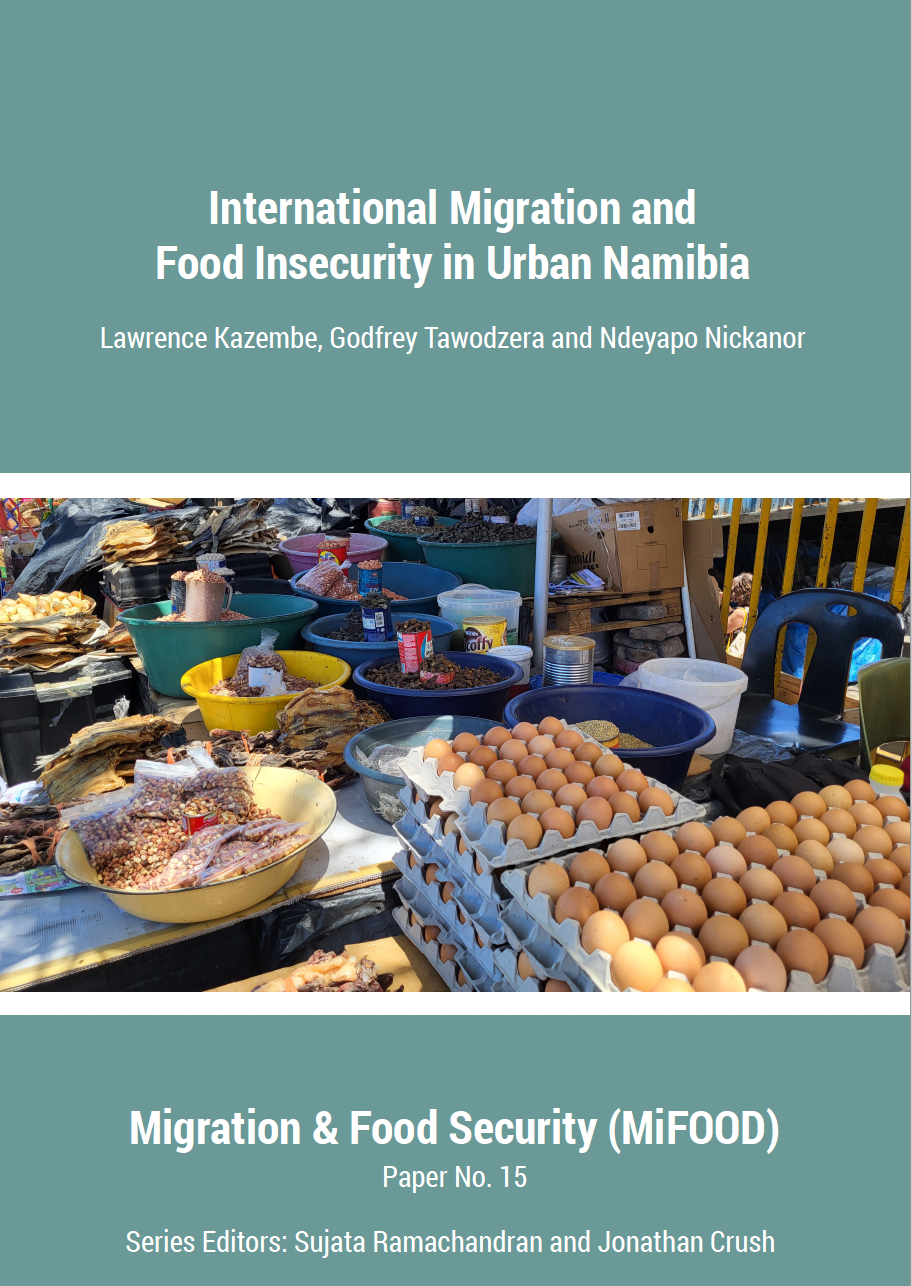Food security and migration have emerged as key development challenges in Namibia. Internal migration, where people move from rural areas to urban centres such as the capital, Windhoek, has been given a great deal of research and policy attention. However, there is a dearth of research on the relationship between international migration and food security in the country. This paper aims to fill this gap by investigating the nexus between international migration and household food security in Windhoek. Drawing on data from a city-wide household food security survey of the city, the paper compares the food security status of international migrant and non-migrant local households. The data show that the migrant households were more food insecure, with less diverse diets, than their local counterparts. Within the migrant group, differences in food security were associated with length of residence in Namibia , type of housing, employment status of the household head, household income, and lived poverty.

